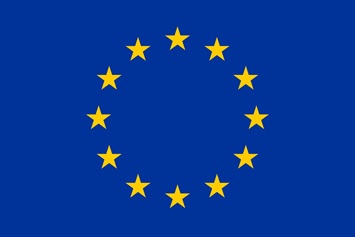Monrovia, Liberia – The European Union has raised serious concerns about Liberia’s efforts to combat Illegal, Unreported, and Unregulated (IUU) fishing, warning that the country risks receiving a “red card” if significant improvements are not made. The EU’s warning was made during a meeting with the Director General of the National Fisheries and Aquaculture Authority, Madam Emma Metieh Glassco recently in Italy. The Head of Unit, Roberto Cesari stressed the severity of the situation considering growing evidence of mismanagement and violations within Liberia’s fisheries sector, particularly involving the National Fisheries and Aquaculture Authority (NaFAA). This is a situation, according to the EU, that demands immediate attention and action.
The EU decided to meet with NaFAA officials on the sideline of the Food and Agriculture Organization (FAO) Committee on Fisheries (COFI) meeting to evaluate Liberia’s progress in lifting the current “yellow card” status. This yellow card serves as a warning and indicates that the country is not doing enough to control IUU fishing. Failure to address the EU’s concerns could escalate to a red card, a severe measure that could result in trade sanctions, including a ban on Liberian seafood products entering the EU market. It was stressed at that meeting that the potential consequences are grave and cannot be ignored.
However, the EU and NaFAA meeting did not go as planned yielded no fruitful outcomes because the focal point of the EU Dialogue NaFAA did not attend the meeting because of existing feud Madam Glassco has with them. NaFAA’s Director General, Glassco, excluded experienced directors who had previously criticized her management. Instead, she brought along less experienced staff who were seen as loyal to her. This decision raised eyebrows, particularly since the EU had emphasized the need for a highly technical and knowledgeable team to address specific queries during the meeting.
During the session, Mr. Roberto Cesari, the Focal Point of the IUU Dialogue of the EU, questioned why the merchant vessel Wei Ning had paid only $100,000 in fines for fisheries violations instead of the US$175,000 mandated by Liberia’s Fisheries Law. The Liberian delegation did not adequately explain the discrepancy in the fines, leading to further scrutiny.
More than that, the letter sent by NaFAA to Wei Fong Shipping Ltd. reveals significant procedural lapses. The letter, dated November 18, 2022, acknowledges the company’s request to reduce the fine imposed on M/V WEI NING for contravening Section 10.25 of the Fisheries and Aquaculture Management and Development Law. Based on the company’s track record, the fine was reduced from $175,000 to $100,000. Still, there is no indication that due diligence was followed or that the decision involved key maritime authorities, including the Liberia Maritime Authority, Ministry of Justice, Ministry of Agriculture, or the NaFAA Board.
The European Union team noted that this lack of transparency and adherence to standard operating procedures (SOPs) is troubling. They pointed out that the reduction of the fine appears to have been done unilaterally without the necessary consent from relevant maritime actors. The EU team contended that such actions undermine the rule of law and raise questions about the integrity of NaFAA’s enforcement practices.
Moreover, the decision to involve less experienced staff in such a critical meeting while sidelining seasoned directors reflects poorly on NaFAA’s leadership and a reflection of the deepening crisis at the Fisheries Authority between employees and Madam Glassco. Reports of bad labor practices, abuse of power, and conflicts with donors over project execution have plagued the institution under the current Director General. These internal issues further complicate Liberia’s ability to present a united and competent front addressing the EU’s concerns.
During the meeting, the EU representatives, led by Mr. Cesari, asked pointed questions about Liberia’s implementation of measures required to lift the yellow card. The Liberian team’s failure to provide adequate responses highlighted the ongoing deficiencies in enforcement and governance within NaFAA. This performance only added to the EU’s apprehensions and the potential issuance of a red card.
A red card from the EU would be disastrous for Liberia. It would affect the Liberian-flagged registry and devastate the domestic fishing industry, which is heavily dependent on international markets. The repercussions would extend to thousands of livelihoods and significantly impact the national economy.
The situation calls for immediate and urgent reforms within NaFAA. There must be a recommitment to transparent governance, adherence to established laws, and the inclusion of experienced personnel in decision-making processes. Addressing these issues head-on is critical to restoring confidence among international partners and ensuring the sustainability of Liberia’s fisheries sector. The need for change is pressing and cannot be delayed.
The EU’s warning should serve as a wake-up call for Liberia. The country must take immediate and decisive action to rectify the shortcomings in its fisheries management. Failing to do so will not only attract international sanctions but also jeopardize the long-term viability of its marine resources. The time to act is now, and it starts with a leadership committed to transparency, accountability, and sustainable practices.

